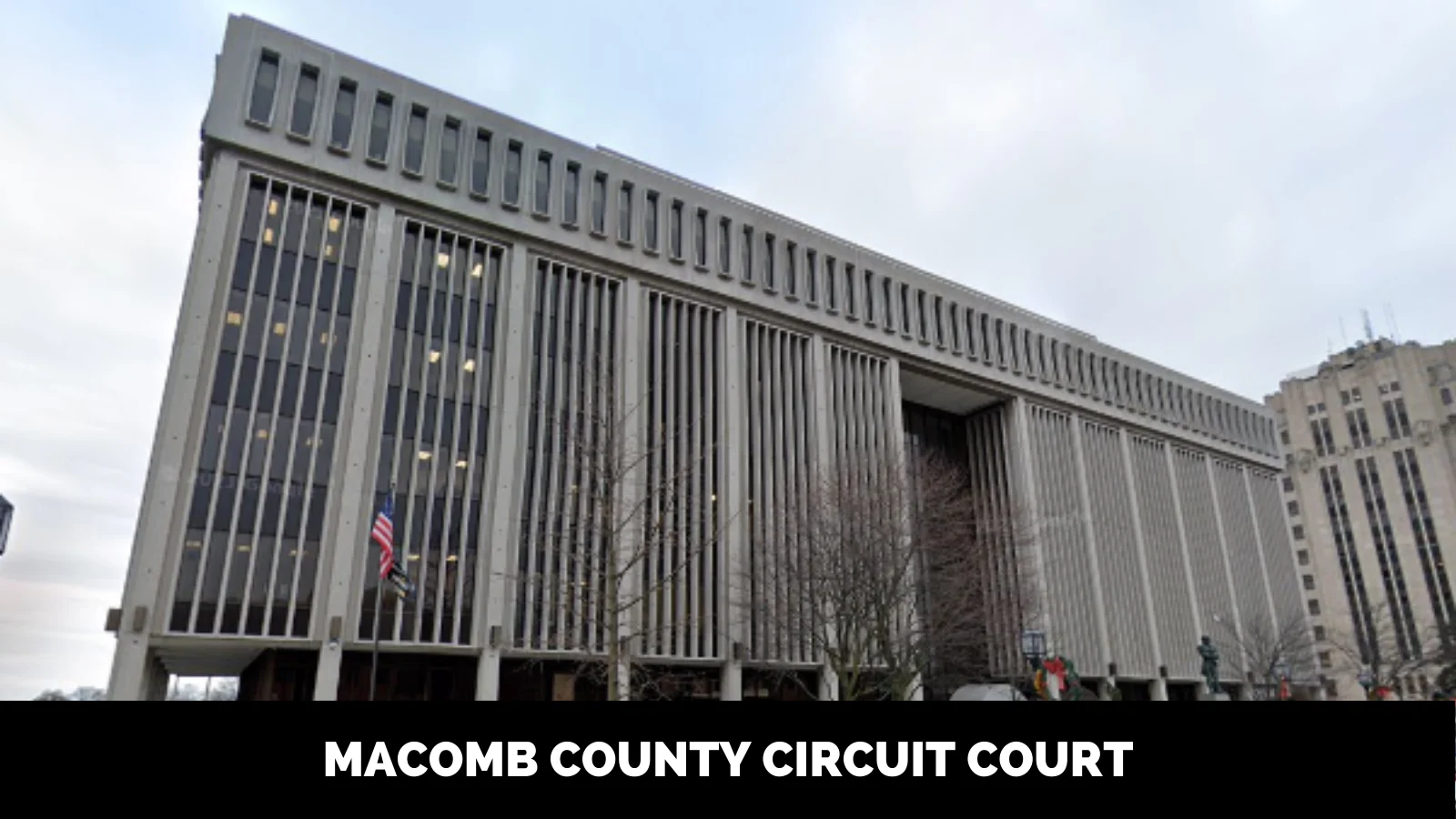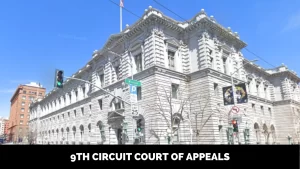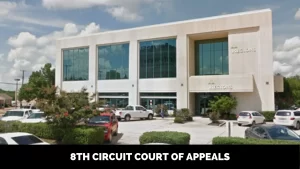History of the 16th Circuit Court AKA. Macomb County Circuit Court
Time
Working Hours:
Monday:
8 am–4:30 pm
Tuesday:
8 am–4:30 pm
Wednesday:
8 am–4:30 pm
Thursday:
8 am–4:30 pm
Friday:
8 am–4:30 pm
Saturday: closed
Sunday: closed
Connect with a Attorney
The 16th Circuit Court was established in 1818 as part of Michigan’s judicial system. It was originally known as the St. Clair County Court, and its jurisdiction covered a large portion of Michigan’s eastern side. In 1827, the court’s jurisdiction was reduced to St. Clair County only, and in 1819, the court moved to its current location in downtown Mount Clemens, Michigan.
In 1968, Michigan’s judiciary was reorganized, and the 16th Circuit Court was created as a trial court with jurisdiction over Macomb County. Today, the court is one of the busiest circuit courts in the state, handling thousands of cases each year.
Jurisdiction of the 16th Circuit Court
The 16th Circuit Court has jurisdiction over all civil cases where the amount in controversy exceeds $25,000, and all criminal cases where the offense is a felony or certain specified misdemeanors. The court also has jurisdiction over family law cases, including divorce, child custody, and child support.
Divisions of the 16th Circuit Court
The 16th Circuit Court has four main divisions: the Civil Division, the Criminal Division, the Family Division, and the Juvenile Division. The Civil Division handles all civil cases, including personal injury claims, contract disputes, and business litigation. The Criminal Division handles all criminal cases, including felony and misdemeanor offenses. The Family Division handles all family law cases, including divorce, child custody, and support. The Juvenile Division handles cases involving minors, including delinquency and neglect proceedings.
Court Proceedings and Processes
The 16th Circuit Court follows Michigan’s court rules and procedures for all cases. The court has a set schedule for hearings, trials, and other proceedings, and all parties involved are expected to adhere to these schedules. Court proceedings are open to the public unless otherwise ordered by a judge.
In criminal cases, the defendant has the right to a trial by jury. In civil cases, either party may request a jury trial, but the court may also decide to hold a bench trial, where the judge makes the final decision.
E-filing with the 16th Circuit Court
The 16th Circuit Court allows for electronic filing, or e-filing, of court documents through the Michigan Court Electronic Filing System (MiFILE). This allows parties to file court documents and access court records online, reducing the need for in-person visits to the courthouse.
Court Records Access
Court records for cases filed with the 16th Circuit Court are available for public access through the Michigan One Court of Justice website. Court records include case filings, court orders, and other documents related to the case.
16th Circuit Court Resources
The 16th Circuit Court provides a variety of resources to assist parties involved in court proceedings. These resources include self-help centers for those who cannot afford an attorney, legal aid clinics, and mediation services.
16th Circuit Court Fees
Fees are associated with filing documents and other actions taken in the 16th Circuit Court. These fees vary depending on the type of case and the action taken, and can be found on the court’s website.
Court Rules and Guidelines
The 16th Circuit Court follows the Michigan Court Rules, which provide guidelines for court procedures, filing documents, and other aspects of court proceedings. The court also has local court rules that provide additional guidelines specific to the 16th Circuit Court.
Notable Cases
The 16th Circuit Court has presided over several notable cases over the years. In 2018, a judge from the court presided over the trial of a former Michigan State University gymnastics coach who was convicted of several charges related to sexual assault. The court has also presided over several high-profile murder trials.
The Michigan Court One of Justice website provides access to court records for the 16th Circuit Court as well as other circuit courts in Michigan, including:
- Macomb County Circuit Court Case Lookup
- Wayne County Circuit Court Case Lookup
- Oakland County Circuit Court Case Lookup
- St. Clair County Circuit Court Case Lookup
Through the Michigan Court One of Justice website, parties can search for court records by case number, party name, and other criteria.
Macomb County Circuit Court Judges
The 16th Circuit Court is located in Macomb County, and is presided over by seventeen judges who are elected to six-year terms. These judges hear a wide range of cases, including civil, criminal, and family law cases.
The judges of the Macomb County Circuit Court are:
- Hon. James M. Biernat, Jr.
- Hon. Richard L. Caretti
- Hon. Kathryn A. George
- Hon. Edward A. Servitto, Jr.
- Hon. Jennifer M. Faunce
- Hon. Mary A. Chrzanowski
- Hon. John C. Foster
- Hon. Rachel Rancilio
- Hon. James M. Maceroni
- Hon. Mark S. Switalski
- Hon. Carl J. Marlinga
- Hon. Diane M. Druzinski
- Hon. Joseph Toia
- Hon. Michael S. Maceroni
- Hon. Daniel J. Kelley
- Hon. Julie A. Gatti
- Hon. Sandra A. Harrison
Macomb County Court
In addition to the 16th Circuit Court, Macomb County also has several district courts that handle lower-level criminal and civil cases. These district courts include:
- 37th District Court (Warren)
- 38th District Court (Eastpointe)
- 39th District Court (Roseville)
- 40th District Court (St. Clair Shores)
- 41A District Court (Sterling Heights)
- 41B District Court (Clinton Township)
- 42-1 District Court (Romeo)
- 42-2 District Court (New Baltimore)
Wayne County Circuit Court
The Wayne County Circuit Court is located in Detroit, Michigan and hears a wide range of cases, including civil, criminal, and family law cases. The court has thirty-four judges who are elected to six-year terms.
St. Clair County Circuit Court
The St. Clair County Circuit Court is located in Port Huron, Michigan and hears a wide range of cases, including civil, criminal, and family law cases. The court has five judges who are elected to six-year terms.
Frequently Asked Questions (FAQs)
How do I file a case with the 16th Circuit Court?
To file a case with the 16th Circuit Court, you will need to visit the court’s website or go to the courthouse in person to obtain the necessary forms and instructions. You can also consult with an attorney who can guide you through the process.
How do I access court records for a case filed with the 16th Circuit Court?
To access court records for a case filed with the 16th Circuit Court, you can also visit the court’s website or go to the courthouse in person and request access to the records. You may be required to pay a fee for copies of the records.
How do I pay court fees associated with my case?
To pay court fees associated with your case, you can typically pay online through the court’s website or in person at the courthouse. You may be required to pay fees for filing a case, obtaining copies of court records, or other court-related services.
Can I request a jury trial for my case in the 16th Circuit Court?
If you wish to request a jury trial for your case in the 16th Circuit Court, you will need to make the request in writing and file it with the court. The court will then determine whether a jury trial is appropriate for your case.
Are court proceedings open to the public?
Court proceedings in the 16th Circuit Court are generally open to the public, unless the judge has ordered otherwise. However, there may be restrictions on taking photographs or recording audio or video of court proceedings.
Conclusion
The 16th Circuit Court is a vital part of the Michigan judicial system, providing a forum for the resolution of civil, criminal, and family law cases. Its seventeen judges bring a wealth of experience to the court, ensuring that parties receive fair and impartial treatment. The court’s adoption of e-filing and other technological advancements has made the court more accessible to the public, further increasing its importance to the community.






